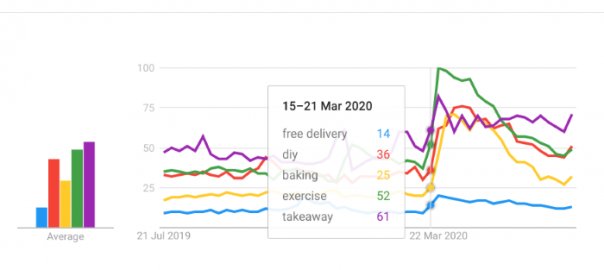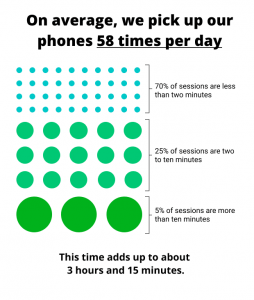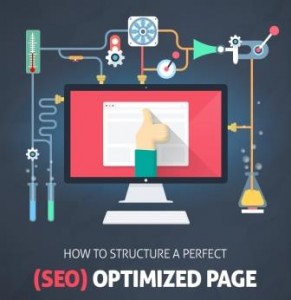When the coronavirus outbreak forced countries around the world into lockdown, brands responded by reducing their ad spend in a bid to cut back on marketing expenses. According to the World Economic Forum, ad spend was down 9% on average across Europe by June while the UK and Germany pulled spending back by a larger 12% each.
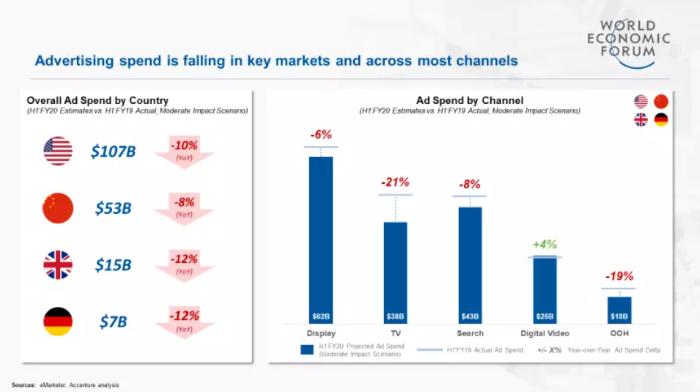
Back in April, Marketing Week and Econsultancy conducted a survey of 447 brands in the UK and found that only 7% of businesses “seized the opportunity” to invest more in marketing during the outbreak.
The survey revealed that 29% of businesses planned to “stay the course” by maintaining their marketing budgets while 50% said they were making cuts in order to “fight another day”.
In times of crisis, brands tend to respond in one of two ways: they either go into crisis mode themselves and maintain/cut costs or they try to “seize the opportunity” left behind by other brands. Clearly, the majority of brands chose to take the former approach in response to the coronavirus outbreak.
When this happens, paid advertising budgets are often the first marketing funds to get cut and data from AIB shows this was the case with COVID-19. According to a report released in April, 70% of ad buyers had already adjusted or paused their planned ad spend while a further 16% were still deciding what action to take.
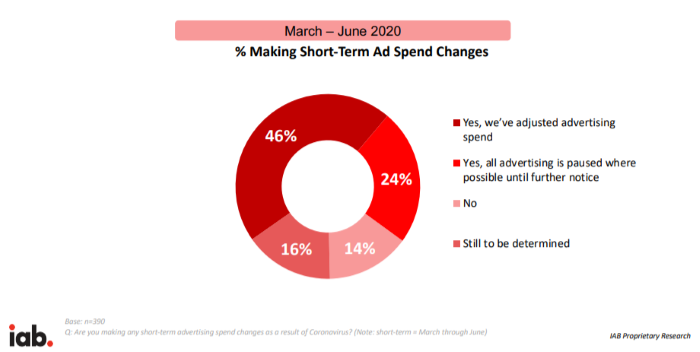
Marketers turn to SEO in times of crisis
While a majority of media buyers were cutting their ad budgets, leading brands started to invest more in “cost-effective” marketing strategies, such as organic search, according to Gartner’s Lili Meng. This theory is reinforced by data from search insights provider Conductor, which illustrates how marketers respond in times of crisis. According to its report, entitled New Trends Reveal the Impact of COVID-19 on Marketing, the most common response to crises – aside from lowering budgets – is to specifically invest more in “lower cost channels” like SEO.
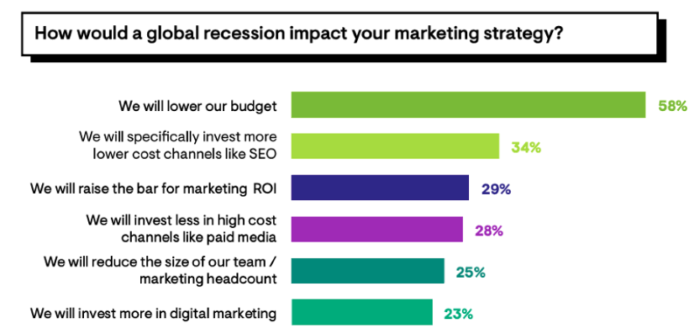
The same report found that 63% of marketers predicted SEO would become more important during the coronavirus outbreak while 66% listed organic search as their top-performing channel in 2019.
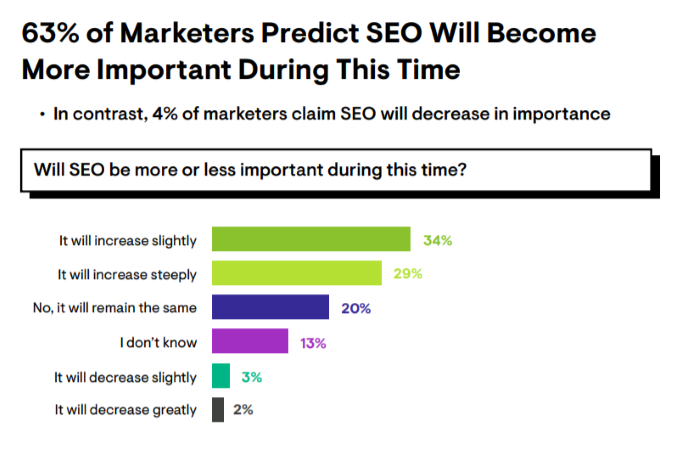
Writing for WordStream, Kristen McCormick explains why SEO is more important than ever during COVID-19. While Jum Yu offers his own take on the role of organic search during the outbreak in an article for Search Engine Land.
Here are some of the key points raised in the two articles:
- SEO is a low-cost, high-ROI strategy
- Organic search drives long-term traffic
- Local search is crucial as lockdown encourages people to look closer to home.
- SMBs benefit from desire to support smaller businesses
- People turn to search engines amid uncertainty
- COVID-19 search trends generate new opportunities
As a low-cost strategy, SEO provides a key channel for brands that want to maintain an online presence while reducing their ad spend, which is a common tactic during financial crises. Unlike paid advertising, which stops dead as soon as you pause ad spend, organic search continues to build momentum, keep your business visible and bring customers to you during difficult times.
This applies to businesses of all sizes that can use SEO to help them through economic downturns. However, organic search has also provided a crucial online platform for businesses that were forced to close their doors during lockdown – a channel they will have struggled to survive without.
Surge in local searches
According to research carried out by Deloitte, 59% of people in the UK have used local businesses more since the lockdown was announced. Interestingly, British consumers say a key reason for their interest in local businesses is a desire to support them during the crisis – not only because of the travel restrictions put in place during the height of lockdown.
At the same time, there’s no denying the physical limitations of lockdown forced people to shop closer to home. Likewise, uncertainty over which businesses were closed and a range of questions about the lockdown had a major impact on how people used search.
Google insights tell us there was a sharp rise in “when will” searches after the lockdown was introduced, a clear side-effect of the unknown future. However, these searches quickly died down after restrictions were eased and the search giant saw a drastic surge in “near me” searches.
Generic search terms like “what is open” were replaced with queries like “what is open near me” as more businesses were allowed to reopen their doors.
At every stage of the pandemic, local search has been the crucial link between people at home and the businesses in their area. For businesses that were safely able to stay open or operate limited services (eg: takeaway and delivery services), local search was a lifeline during lockdown.
Google was quick to respond with advice for local businesses and introduce new features for local search, Google My Business and Google Maps to help as many businesses as possible continue to operate in the best way they could. For example, Google allowed businesses to add a range of attributes to show that takeaways, deliveries, no-contact deliveries or kerbside pickups are available – and these continue to show now (as well as an attribute for dining in where available).

Moves like this helped businesses take full advantage of the surge in local searches and communicate to users that they are still operating should they be needed.
Small businesses go online for survival
Research carried out by Hitachi Capital UK finds that one in seven (14%) small businesses are transitioning towards becoming fully or mainly online enterprises in order to survive the coronavirus outbreak. The study suggests that businesses offering services fully-online have increased by 50% since the lockdown was announced, increasing from 24% to 38%.
This doesn’t include the portion of businesses that have transitioned to operating partially online since the outbreak hit the UK.
With no guarantees over how long it will take for British consumers to feel comfortable with returning to traditional shops, the majority of smaller businesses can’t wait to find out when this will be, if ever.
For smaller businesses making the transition to online operation, organic search is the obvious strategy to prioritise. Lockdown has encouraged consumers in the UK to do more of their shopping online, get more items delivered to their home and deal with more local businesses – all of which are opportunities small businesses can capitalise upon during this difficult period.
In this sense, organic search has the potential to save thousands of businesses that can’t survive the gradual easing of lockdown restrictions and the lasting impact upon high street footfall.
New trends bring new opportunities
As devastating as the coronavirus outbreak has been for businesses, it has also provoked the biggest shift in consumer habits that we’ve seen in the digital age. These shifts bring new opportunities and you only have to look at the search data to find where these are.
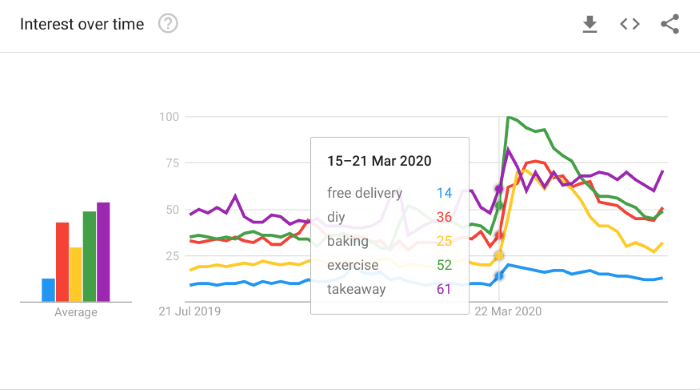
Google insights reveal that interest in clothing, cosmetics and beauty declined significantly during lockdown while searches for “blinds, shades and shutters” were up by 109.95% over a 7-day period. Some new trends were the direct result of restrictions put in place by the lockdown itself – for example, free delivery, takeaways and face masks.
However, the lockdown also encourages people to reassess their priorities. Makeup and beauty dropped down the list while interest in exercise soared and searches for bicycles and home gym equipment also increased as a result. With people being forced to stay at home, we also saw an uptake in searches related to home improvement, DIY and home furnishings.
The outbreak has changed consumer behaviour and brands need to react accordingly.
With more people shopping online than before the outbreak and people shopping online more frequently than before, brands also have to recognise that there are more opportunities to win customers who are turning to search engines for almost all of their needs. The latest IMRG Capgemini Online Retail Index shows that online retail sales in the UK surged by 23.8% year-on-year in April – a 10 year high, according to the organisation’s data. The same study shows a 288% increase in online gardening sales, a 102% increase for consumer electronics and an 82% rise in online health and beauty sales.
Digital & Social Articles on Business 2 Community
(62)
Report Post